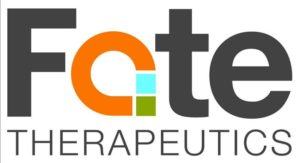FT522 is our investigational, off-the-shelf, iPSC-derived CAR NK cell product candidate, and our first product candidate to incorporate our novel alloimmune defense receptor (ADR) technology which is designed to reduce or eliminate the need for administration of conditioning chemotherapy to patients receiving cellular immunotherapy. While approved autologous CAR T-cell therapies have demonstrated compelling efficacy in treating patients with relapsed / refractory hematologic malignancies, several key challenges limit its adoption and patient reach including the need to co-administer conditioning chemotherapy to patients. Conditioning chemotherapy induces toxicities, necessitates administration in large hospitals and treatment centers with intensive care units, and prevents effective combination with standard-of-care treatment regimens widely used in the community setting.
The novel, synthetic ADR receptor incorporated into FT522 targets 4-1BB (CD137), a member of the tumor necrosis factor receptor superfamily which is upregulated on alloreactive CD4+, CD8+, and regulatory T cells as well as activated NK cells of the host immune system. The ADR receptor is designed to (a) selectively recognize and destroy alloreactive host immune cells that would otherwise be capable of rejecting the product candidate, (b) maintain other components of the host immune system to preserve hematopoietic cell function, and (c) activate the product candidate to enhance its potency and persistence.
Published preclinical studies have shown that ADR-armed, CAR-targeted allogeneic cell therapies are protected from both T- and NK-cell mediated rejection (Mo et al. Nature Biotechnology, 39, 56–63 (2021)), providing proof-of-concept that ADR-armed allogeneic cells can persist and function in immunocompetent patients. We believe we have the unique opportunity to establish clinical proof-of-concept for our ADR technology without the use of conditioning chemotherapy early in dose escalation of our ongoing multi-center, Phase 1 study for FT522 in B-cell lymphoma. In addition, we plan to expand clinical investigation of our FT522 program to autoimmune diseases.
